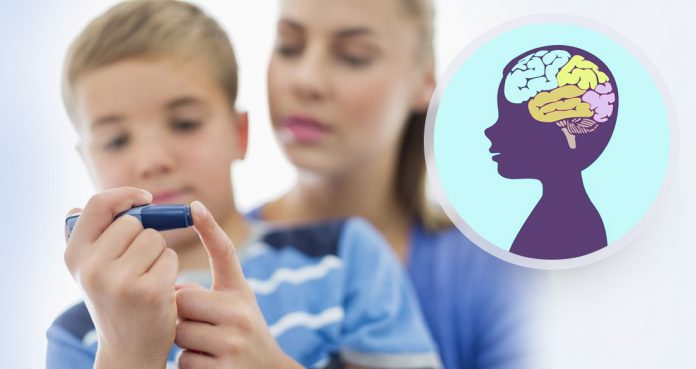A new study, published online in the journal PLOS One, has found that children with type 1 diabetes may have poor brain function than non-diabetic children.
Researchers at the Stanford University School of Medicine found that type 1 diabetic children have subtle but important differences in their brain function.
Type 1 diabetes, aka insulin-dependent diabetes mellitus (IDDM), occurs when the pancreas does not make the insulin that regulates blood sugar. So, patients need to take insulin via injections or an insulin pump.
Senior researcher, Lara Foland-Ross, said, “Our findings suggest that, in children with Type 1 diabetes, the brain isn’t being as efficient as it could. Kids with diabetes have chronic swings in blood glucose levels, and glucose is important for brain development.”
The brain cells need to receive a steady supply of glucose for energy.
Previous studies have found that children with type 1 diabetes have mild changes in brain structure and impairment in cognitive function. However, the exact link was unclear.
“It was important to capture what is going on in the brains of these kids functionally,” said Foland-Ross.
In the current study, the researchers looked at the functional MRI brain scans of children with type 1 diabetes and found that their brain had a set of abnormal patterns that could be seen in other conditions such as ADHD, multiple sclerosis, concussion, and cognitive decline in aging.
Senior study author, Dr. Allan Reiss, said, “The takeaway from our study is that, despite a lot of attention from endocrinologists to this group of patients, and real improvements in clinical guidelines, children with diabetes are still at risk of having learning and behavioral issues that are likely associated with their disease.”
The authors also found that these abnormal patterns in the brain were more pronounced in children who had had type 1 diabetes for a longer duration, suggesting that the condition may get worse over time.
“The longer the exposure you have to dynamic changes in blood glucose levels, the greater the alterations in brain function with respect to the default-mode network,” said Foland-Ross said. “Studies in adults with diabetes suggest that in the later stages of the disease, the brain eventually loses its ability to compensate for this problem,” she added.





















